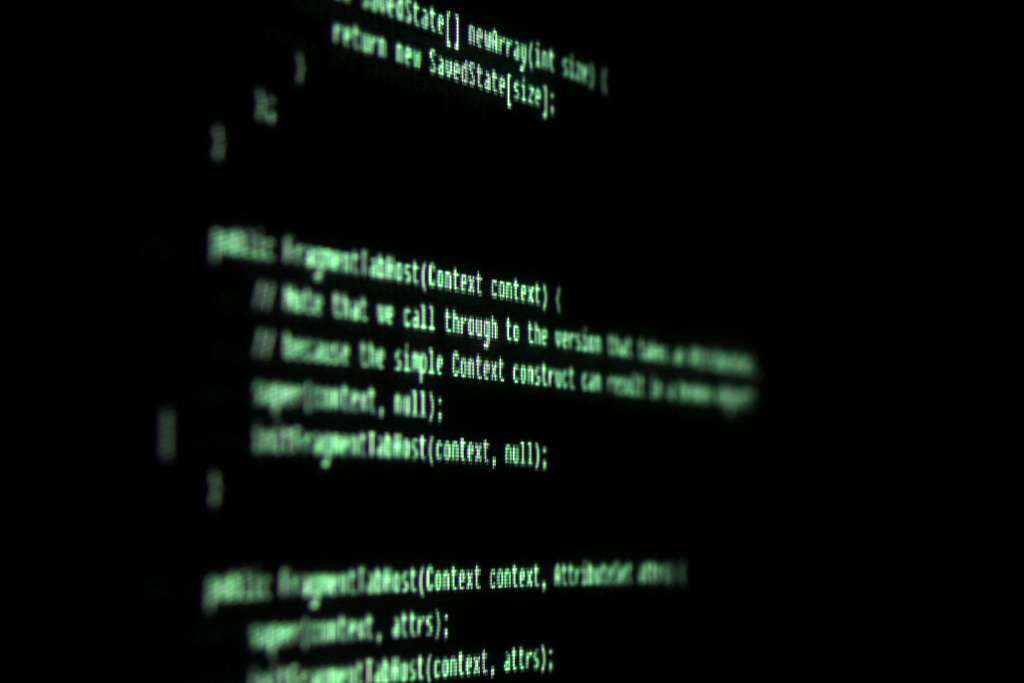Helpful Hackers vs. College Regulators
Why are state governments cracking down on innovative coding academies?

No one has ever called Milwaukee "the Silicon Valley of the Midwest." Or even "the Silicon Valley of Wisconsin." And they're not likely to any time soon, especially if state regulators get their way.
In November 2014, the Milwaukee Journal-Sentinel reported that the city would be getting its first intensive computer coding school, a.k.a. "computer boot camp" or "coding academy," at the beginning of 2015. That didn't happen. In January the Journal-Sentinel reported that the Global Entrepreneurship Collective, the nonprofit organizer behind the proposed Ward 5 Code Camp, would be postponing its debut to address regulatory requirements imposed by a state agency, the Educational Approval Board (EAB).
The EAB oversees private postsecondary education institutions in Wisconsin that are vocational in nature and not licensed or regulated by any other agency or public board. To comply with state regulations, Ward 5 must complete a lengthy application, pay the EAB a $2,000 fee, and buy a $25,000 surety bond. Unable to complete these tasks by its January start date, Ward 5 refunded tuition fees to students who had signed up for its $6,500 program, and said it would try to open at a later date.
What exactly is the EAB trying to protect the citizens of Wisconsin from—besides the possibility of obtaining a high-paying job in the tech industry?
Coding academies are a relatively new phenomenon. Typically, they offer immersive programs that teach students how to code in JavaScript, Ruby on Rails, and other in-demand languages in just 9 to 12 weeks. Classes are held on a daily basis, generally from 9 a.m. to 5 p.m., and many programs tell students they should expect to devote at least 20-40 more hours a week beyond classroom time to complete their assignments. Ward 5's $6,500 tuition is on the low end of the coding academy spectrum. Dev Bootcamp, located in San Francisco, charges $13,950; Hack Reactor, another San Francisco coding academy, charges $17,780.
For the sake of comparison, tuition for a 12-week quarter at Stanford University runs around $15,000 these days. But if these coding academy upstarts are charging as much as our most elite institutions of higher learning, they're also promising extremely favorable outcomes for students who complete the accelerated programs. On its website, Hack Reactor claims a "99 percent graduate hiring rate," with average starting salaries at $105,000. Zipfian Academy says that 91 percent of its graduates get jobs at companies like Facebook, Twitter, and Tesla within six months of completing the program, with an average base salary of $115,000. App Academy says that 98 percent of its graduates "have offers or are working in tech jobs," and that 2014 graduates from its San Francisco program "received an average salary of $105,000."
Regulators have shown an interest in these California-based academies as well. In January 2014, the state's Bureau of Private Postsecondary Education (BPPE) sent warning letters to at least a half dozen local coding programs. According to VentureBeat, which first reported on the letters, the coding academies were given two weeks to "start coming into compliance" with BPPE regulations. If they didn't, they risked $50,000 fines and forced closure.
Like the EAB, the BPPE operates under the mantle of consumer protection. On its website, it explains that California was known as the "diploma mill capital of the world" in the 1980s. And presumably its mandate is to weed out institutions that consist of little more than a charlatan with a post office box and a stack of fancy-looking certificates he's willing to dole out for a few thousand bucks. The BPPE demands that schools submit building plans and campus maps as part of their application process, as well as asking for evidence that all instructors have a college degree and at least three years of teaching experience. The regulators say they wants to make sure that any private postsecondary institution that is charging $2,500 or more in tuition to students, and promising some vocational benefit, is offering actual instruction. (Institutions that charge less than $2,500 total in tuition, or offer only avocational or recreational instruction, are exempt from the BPPE's purview.)

But how can you be a diploma mill if you don't actually issue diplomas? Unlike the shady operations the BPPE is designed to prevent-or the thousands of accredited U.S. colleges and universities that grant degrees—the coding academies are not in the business of selling certification. All they offer students is instruction and a shot at a high-paying tech job. And in turn, that's all that students can buy from them.
If you graduate from Harvard, Stanford, or even some little-known state college and you are not crazy about the education you got, well, at least you've got a sheepskin that gets your foot in the door in situations where a bachelor's degree exists as the default filter. If you graduate from Hack Reactor or Dev Bootcamp, you better hope you've learned something about making calls to an API because your skills are all you leave with.
On the flipside, coding academies have a strong incentive to teach their students. By removing certification from their offerings and tying their value so closely to their ability to produce graduates who are able to find six-figure tech jobs with their new coding skills, the academies make themselves far more accountable than traditional universities. When was the last time that you saw even Harvard promising that 98 percent of its graduates emerge with an average starting salary of $105,000?
To make sure they can produce students who can help them achieve such high job placement rates, the coding academies don't just accept anyone who has the ability to pay tuition. Most are selective—Hack Reactor reportedly accepts fewer than 10 percent of its applicants. In addition, many require students to successfully complete preliminary programs remotely before they actually come to the boot camp portion of the curriculum. And some, like App Academy, defer payment until students complete the program and land a position.
The kind of oversight that regulatory agencies like the EAB and the BPPE want to exercise over coding academies has some value. Information about graduation rates and job placement rates can help aspiring students choose which programs to pursue.
But the supervision these agencies provide also comes with signification costs. More than a year after the BPPE sent letters to the coding academies, none of them are licensed yet. "Licensing is a lengthy process for schools," says Russ Heimerich, deputy director of communications for California's Department of Consumer Affairs. In addition to all the paperwork the academies must complete, there will be financial obligations as well: A $5,000 application fee, plus 0.75 percent of their annual tuition revenues, capped at $25,000.
General Assembly, one of the institutions the BPPE targeted last year, reports on its website that it submitted an application and is waiting to hear back. App Academy echoes this experience. "We do not have a license from the BPPE, but we are working toward it," an App Academy spokesperson says. "Unfortunately it is a multi-year process."
Of course, now that the Internet exists, oversight is a far more abundant commodity than it once was. While the BPPE has yet to post any information about these schools for the benefit of prospective students, Yelp.com has nearly 100 reviews of Hack Reactor alone. Quora.com has more than 50. And Course Report, a site that specifically bills itself as a resource for individuals in the process of choosing a coding academy, already has a placeholder page for Milwaukee's Ward 5. If the program ever makes it past the barriers imposed by 20th century regulators, the real scrutiny and assessment will begin.
